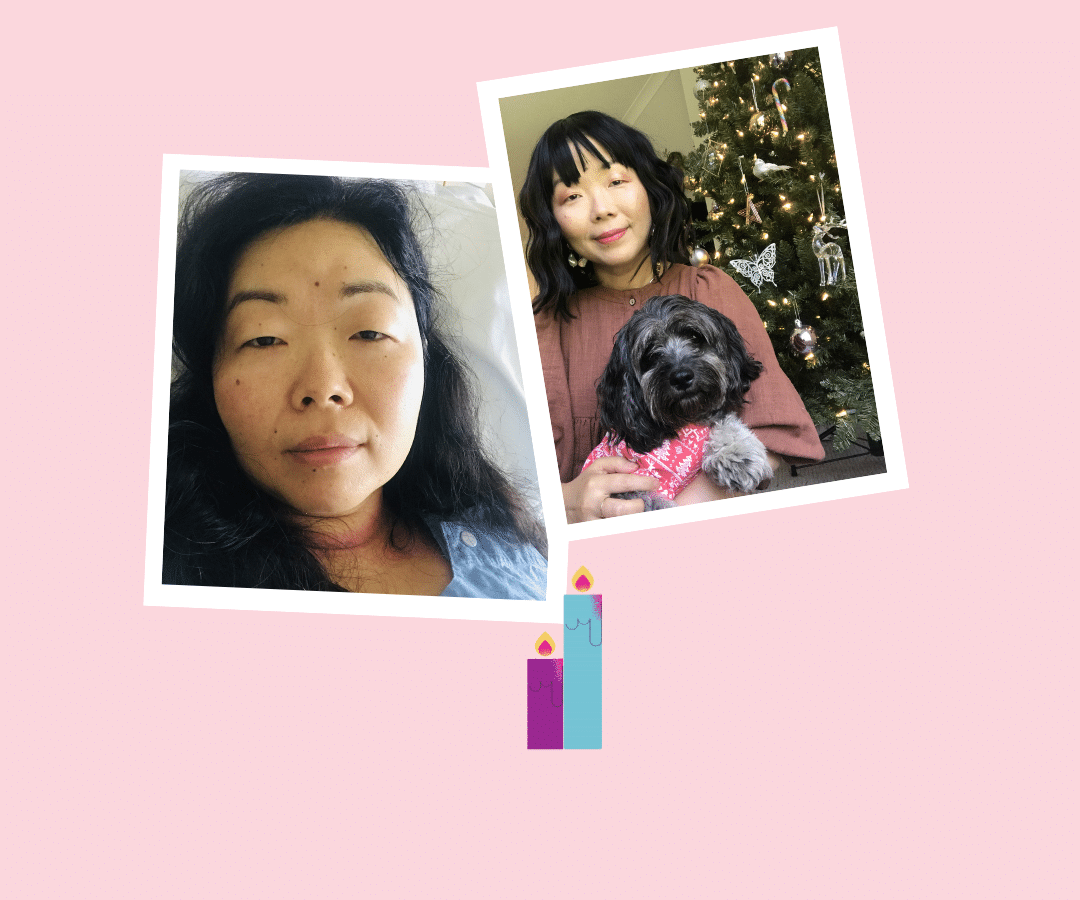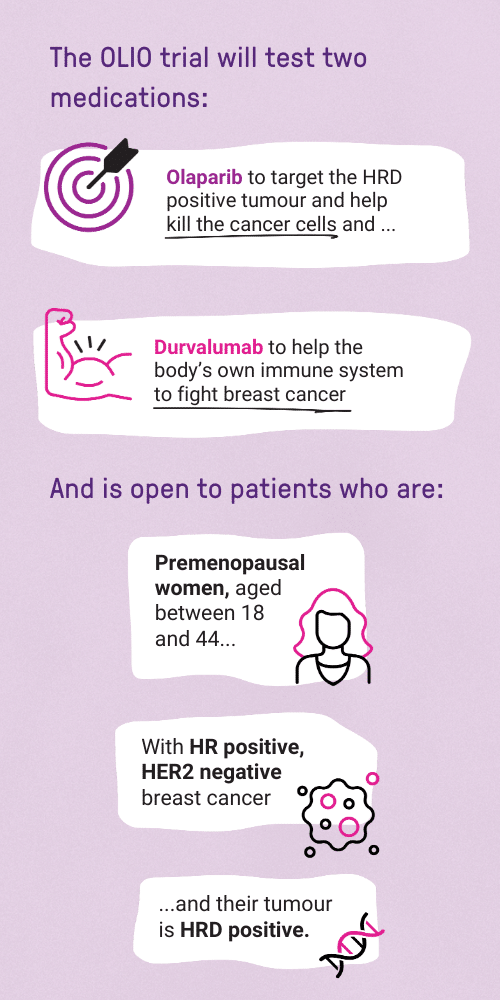- Research
- 2022-2026 Research Strategy
- Open Clinical Trials
- Closed Clinical Trials
- What is a Clinical Trial?
- Why Participate in a Clinical Trial
- Remote Telehealth Pre-Screening Process
- Research Achievements
- Publications
- Research Development and Funding
- Participating Institutions
- International Collaboration
- BCT Trials & Projects Summary
- Translational Research
- Clinical Fellowship Program
- International Fellowship Support
- Annual Scientific Meeting
- Travel Grants and Awards
- About
- Our Impact
- Fundraise
- Donate
- Researcher Login
- Cart
Your help is urgently needed this Christmas to fund the promising OLIO trial.
Tamara’s Story
One week after finding the lump that all women dread and after an urgent mammogram, ultrasound and biopsy, Tamara’s worst fears were confirmed.
“It was Thursday when my GP called me. I had breast cancer.”
Tamara had hormone receptor (HR) positive, HER2 negative breast cancer, which is the most common subtype of all breast cancers but very unusual in premenopausal women.
When it does appear in younger women, it’s often much more aggressive and they receive intensive treatment which can have awful side effects.
Tamara would have three surgeries, eight cycles of chemotherapy and twenty-five sessions of radiation treatment. Plus, hormone therapy and too many medications to count.
“During radiation, my surgical scars opened and became infected. I have hyperthyroidism. I’ve had a bone effusion for osteoporosis. The bane of my existence is having a frozen shoulder. I feel like I’m 90 years old when I wake up.”
Sadly young premenopausal women like Tamara with HR positive, HER2 negative breast cancer have a poorer prognosis because they have a higher chance their breast cancer will come back.
This is why we urgently need your help.
Please donate this Christmas to the OLIO trial and help improve and save the lives of young women with breast cancer.
OLIO is a groundbreaking new clinical trial led by our researcher, Dr Stephen Luen.
Through analysis of breast cancer tumours collected from one of our previous clinical trials called SOFT, it was discovered that many tumours in younger women have a deficiency in repairing DNA damage.
This new knowledge means that we can use treatments which can target the biology of these breast cancer tumours.
For younger women like Tamara what we learn from this trial could be life-saving.


